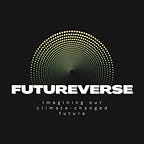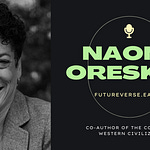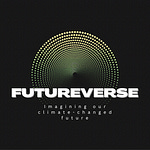In this episode of Futureverse, Molly Wood and Ramanan Raghavendran sit down with acclaimed author Sam J. Miller. They explore themes of dystopia, activism, and the intersection of technology and nature while reflecting on the realities of marginalized communities, the impact of AI governance, and the hopeful resilience of people in the face of adversity.
The full transcript is available by clicking above. This episode is also available on Apple Podcasts and Spotify.
Highlights
01:49 Exploring Qaanaaq: A Floating City of Refugees
04:23 Dystopia vs. Reality: The Intersection of Fiction and Activism
06:03 Character Perspectives: The Four Lenses of Qaanaaq
16:23 Climate Change and Floating Cities
21:00 Immigration and Climate Crisis
24:53 Resilience of the Marginalized
27:13 Hope Amidst Despair: The Power of Community
28:47 AI's Role in Society: A Cautionary Tale













